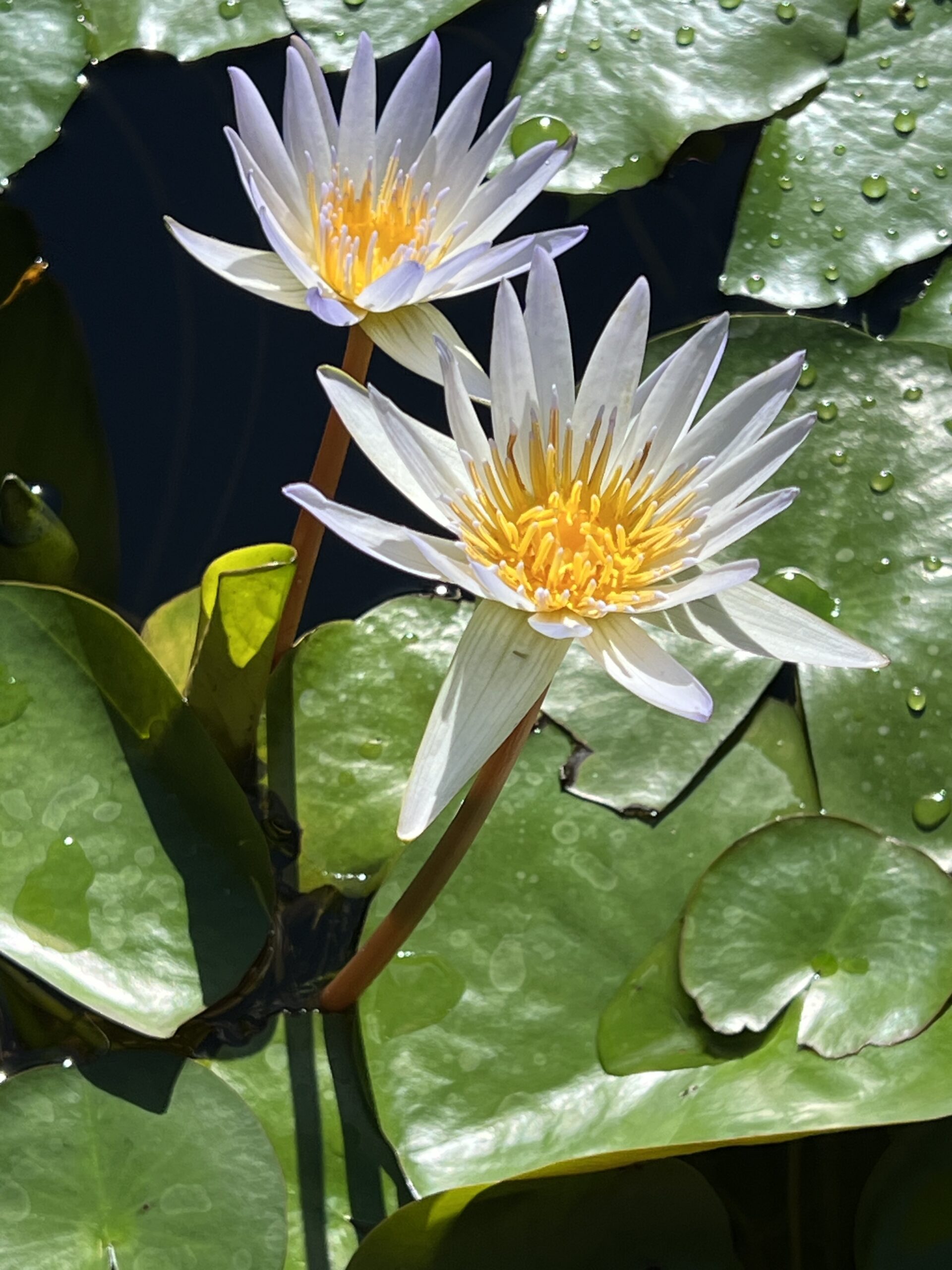FAITH
“Be faithful to that which exists within yourself.”(André Gide)
The other morning I watched what I thought was a frog bobbing around in the flower bed. Before long I realized it was a tiny earth-coloured bird, clumsy and almost flightless. After observing its attempts to fly, I got the sense that it had fledged too early, and it’s likelihood of survival, especially in a garden frequented by feral cats, was discouragingly low. And thus commenced the perennial human dilemma, do I intervene in some way to increase the odds of survival, or let nature run its course?
I intervened.
I sprinkled a handful of ground chia seeds on the sidewalk nearby and checked periodically to see if it had been depleted. My spirits lifted when I saw that the seeds were almost gone, until I learned that my husband and current nurse-man/sherpa had swept them off the path.
Later, reading on the lanai, I observed the two parent birds hopping and chirping, demonstrating flying to their floundering chick. To no avail. Later, finding the chick huddled next to a table leg, I had Jim place a dish of water on the deck next to it. He kindly splashed some water on the ground to clue in our chick to the contents of the dish. Then we left for dinner and it was too dark to see the baby bird on our return.
I woke the next day reflecting on the necessities for survival. With the vulnerable chick in mind, the first words that came to mind were food and water, safety and shelter. So I decided if I found the chick again I would bring it inside our main hale, leaving the sliding glass doors open wide during the day, so the parents could still encourage their offspring, but where the cats wouldn’t be so bold as to enter. As of this writing, I have only heard various chirpings, but no sign of our baby bird. Would I dare to activate my plan if I were to find it again? If not, why wouldn’t I?
Well I did find it again. Or at least what remained of it. A small scattering of minute feathers told me all I needed to know. Then the recriminations started. I should have searched for it the night before. Could have better ensured it’s safety. Could have acted more decisively. Shoulda, coulda, woulda.
The whole process showed me how I’ve elevated self- doubt and second-guessing to a fine art, one in which, regardless of what I choose, I’m damned if I don’t, and damned if I do. It’s not so significant that my dilemma be a matter of life and death, albeit a baby-bird-size one, as it is important to see how crippling indecision and self-doubt can be. To compound it with self-recrimination only adds insult to injury. How to break this vicious circle? As I was ruminating about this pattern a friend sent me the quote from André Gide:
“Be faithful to that which exists within yourself”.
If faith is the antidote to doubt then what exists within me that I might have faith in? My intuition? My inner wisdom? What happens when I can’t hear or don’t respond to intuition’s promptings? What is happening when I’m crippled with indecision?
To answer these questions I turned to a post by life coach Martha Beck: “How to Stay True to Yourself—No Matter Who You’re Talking To.” Beck writes that crippling indecision is often caused by looking to others for acceptance, approval or affirmation. Even if there’s nobody around! Being ruled by what others might think compels me to take on the role of two or more people: myself and whomever else I have internalized. It is fear, on some unconscious level, of making mistakes and being ostracized from the tribe that creates the endless loop of yes-no-maybe-so. Step one in getting out of this loop is choosing to believe in my own intrinsic value.
According to the Stanford Encyclopedia of Philosophy:
“The intrinsic value of something is said to be the value that that thing has “in itself,” or “for its own sake,” or “as such,” or “in its own right.” Extrinsic value is value that is not intrinsic.”
The more value I place on extrinsic markers of success and acceptance (aka fame and fortune) and by which yardstick I compare myself and everyone else, I will lack faith in my innate worth as a person. And unfairly place people above or below me in an arbitrary hierarchy as unsound as a house of cards. Better I do unto others as poet Roy Croft wrote in his “I Love You” poem:
“I love you for
putting your hand into my heaped-up heart
And passing over all the foolish, weak things
that you can’t help dimly seeing there,
And for drawing out into the light
All the beautiful things
that no one else had looked
Quite far enough to find.”
Amor Vincit Omnia
